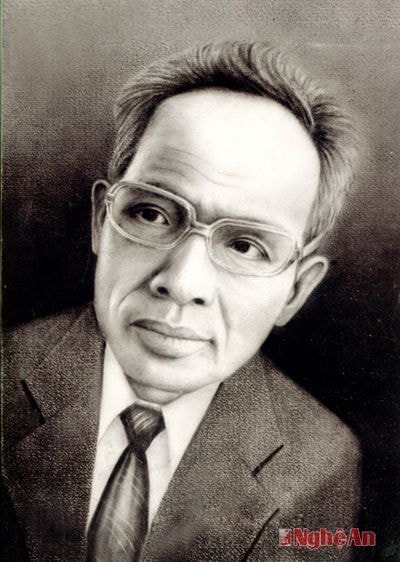Collector and publisher of the article "Deep Father-Son Love"
(Baonghean) - The song “Father and Son Love” is widely circulated in Nghe An, performed by many generations of artists, from street singers to famous artists. Many mothers lull their children to sleep.
 |
| Mr. Nguyen Thanh Kham. |
According to the late Associate Professor Ninh Viet Giao, the poem “Father and Son Love” was dictated to him by Mrs. Giap in Hau Thanh during one of his field trips. But before that, Mr. Nguyen Thanh Kham had collected and compiled it into the collection “Nghe Tinh Verses” published by the Nghe An Department of Culture in 1957. Later, Ninh Viet Giao compiled it into “Nghe Tinh Verse Treasury”, volume 4.
Another document, the book "Folklore of Nghe Tinh" published by the Institute of Folklore Research and Nghe An Publishing House, edited by Professor Nguyen Dong Chi, is the collection "Nghe Tinh Verses" which includes the poem "Father and Son Love" collected, compiled and published by Thanh Kham, Nghe An Department of Culture, in 1957. This is a reliable document that confirms one thing, after many years and many generations of oral transmission among the people, for the first time the poem "Father and Son Love" was copied and printed by an officer of the Department of Culture and is the basis for passing it on to many future generations.
Mr. Nguyen Thanh Kham was born in 1915 in Nhan Thap village, Vinh Thanh commune - He was the son of Confucian scholar Nguyen The My (commonly known as Mr. Do My), a patriotic Confucian scholar, good at studying but failed to pass the exams, returned home to open a school, wrote poems and literature, and propagated patriotic ideas against the French. When the Nghe Tinh Soviet movement broke out, he actively participated in the propaganda front, he wrote poems and antithetical couplets to encourage and motivate the movement, he was imprisoned by the French. Some of Nguyen The My's poems and literature were printed in "Poetry and Literature of Confucian Scholars of Nghe An". Nguyen Thanh Kham learned literature early from his father, he participated in revolutionary youth work from the pre-uprising days. After the August Revolution, he participated in propaganda and agitation work in the district and province. He was a close friend of Tran Huu Thung, working together, composing folk songs and verses, and collecting and popularizing folk literature. Many people still remember Nguyen Thanh Kham's clear voice reciting poetry, telling folk songs, and singing Giam. It was during his years of working in the mass art movement that he collected, compiled, edited, and published for the first time the song "Phu Tu Tinh Tham" and other Vi and Giam songs.
Listen to Meritorious Artist Hong Luu perform the song "Father-Son Love":
Nguyen Thanh Kham's life was associated with vibrant cultural and artistic activities during the two resistance wars against the French and the Americans. From a movement cadre, he became a management cadre (Head of the Arts Department of Nghe An Cultural Service), an active writer, with achievements in many genres: folk songs, folk songs, funeral orations, parallel sentences... He was one of the members of the campaign committee to establish the Nghe An Arts and Literature Association and became a founding member of the association in 1967. After his retirement, he continued to bring his talent and capital to serve the locality. The poems and writings of Mr. Nguyen The My (his father), of Nguyen Thanh Kham and of his children: Nguyen Dang Chi (Member of Nghe An Arts and Literature Association) and Nguyen Dang An (Member of Vietnam Writers Association) were published in many poetry and writing anthologies of the Central and local levels. All three generations were bathed in the source of folk poetry to create literary works, and they themselves cherished and carefully collected precious gems of folk poetry to pass on to future generations.
Ngo Duc Tien
